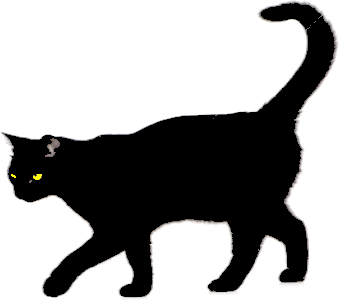Life in this world is unpredictable. Our natural survival instincts create a healthy fear of the unknown. Believing in superstitions offers an escape from this predicament, granting us a sense of control.
Superstitions are likely rooted in our evolutionary biology. In this context, we’ll explore how superstitions can be both reasonable and ridiculous - through religious perspectives and pragmatic lenses.
“Repeat a lie often enough and it becomes the truth” is a law of propaganda often attributed to the Nazi minister Joseph Goebbels.
Repetition makes statements easier to process compared to new, unrepeated ones, leading people to believe that the repeated conclusions are more truthful. That's a golden rule for successful advertising, as seen in slogans such as "Diamonds mean everlasting love".
Politicians also exploit this reinforcement technique, and was Donald Trump's initial ticket to the White House in 2016, and again in 2024.
A superstition is a belief in something that is impossible, irrational, an outright lie, or a mix of all three. A lie is still a lie, no matter how many times it's repeated.
However, in contrast to the blatant lies from advertisements and politicians, some retold falsehoods can actually have beneficial results. Many past-down fables attributed to Aesop are moral lessons woven into stories, teaching children good manners and social rules that carry into adulthood.
Paradoxically, it can sometimes be reasonable to be superstitious - even though superstitions are not based on reason.
Classical decision theory, not to mention common sense, suggests that we believe a superstition if the cost of believing is less than the cost of missing a real association. For example, don't walk under a ladder since the cost, in terms of effort to walk a little farther around the ladder, is lower than the cost of replacing your head if a roofing tile falls on it.

Make the sign of the cross if a black cat crosses your path; they are said to be shape-shifters,, familiars of evil spirits and curl up like snakes on the hearths of witches. If you ignore this advice you could succumb to a fatal illness.
Well, certainly if a cat walks across your food preparation area, you increase the risk of having gastric ulcers (from helicobacter pylori - a sort of tiny helicopter flown by a demented bacterium). Fleas are enough justification for avoiding cats, whatever the colour of the cat, but cats can cause much more harm than those tiny itchy little bloodsuckers.
Cats can be the source of ringworm, campylobacter (bacteria in a tent), streptococcus (causing you to strip to your coccyx), salmonella (sounds fishy) and rabies; none of which are very nice. They can cause schizophrenia, conjunctivitis, tonsillitis, pharyngitis, toxoplasmosis... the scary list of nasties is pretty long.
So it makes sense to avoid all cats; not just black ones that cross your path.
(Believe it or not, I actually like cats. I like lots of things that are not good for me.)
Unless hindered by ailments such as arthritis, it's easy to cross our fingers to instil hope that things will turn out well. Crossing fingers originates from the Christian practice of making the sign of the cross. However, our focus is not on the Christian origin; rather, it's on the desire for a favourable outcome. This positive mindset can often contribute to success.
Less understandable, however, are superstitions such as the old Aztec custom meant to sustain the universe. Every three weeks, these Mesoamericans dragged victims to the top of a pyramid/temple, sliced open their chests, and held up the still-beating heart to the gods.
This practice had less to do with common sense and more to do with tribal leadership exerting control over the people by spinning a horror story. Modern parallels to such tactics include Bush's invasion of Iraq in 2003 and Putin's invasions of Ukraine in 2014 and 2022.
Church leaders throughout history have also been guilty of similar bullying.
Take care not to confuse religion with just a turbo-charged superstition. A superstition could paint itself pink and do freestyle breakdancing like a mad mongoose singing "Billions of people follow me. Therefore I am a religion!" But it would still be a humble superstition.
What is the strongest superstition you can think of? Go on, really think hard and choose what you believe is the most powerful.
Then consider how it - or any other superstition - has benefited humanity. Has a superstition ever had the power to change someone's life for the better? Or for the worse? (...apart from the aforementioned Aztec victim, of course.)
Has any superstition truly touched the soul?
Superstition is not based on reason but relies on trust in chance or an irrational fear of the unknown or mysterious. By contrast, the cornerstone of religion is love and trust in Divine Power. While superstitions exist within religion, religious faith is not based merely on glorified superstition; it is grounded in a consciousness of one’s personal relationship with the infinite and the eternal.
As humans, we recognise patterns, connect the dots and create meaning from what we see - or think we see. When we're unsure if what we see is real, we can be influenced by suggestions from those in powerful positions, even if it comes at a cost.
That said, as human intelligence has developed and our lives are less threatened by natural disasters, the benefits of superstitious beliefs have diminished. This doesn’t mean superstitions are groundless or destined to become obsolete anytime soon. Superstition will remain a human trait for generations to come, and attempts to abolish it are invariably futile.
The previous section showed that religion and superstition are different, yet the wisdom of following certain superstitions (mentioned at the top of this page) can also be applied to religion.

Pascal argued that one should believe in God, even if one assumes God doesn't exist. The potential benefits of belief make betting on theism rational. Faith offers comfort on Earth and the promise of everlasting life in Heaven. Of course, there are far better reasons and a more convincing basis for belief in God’s existence, but Pascal’s Wager offers food for thought to even the most sceptical minds, though it is unlikely to lead to belief.
As humanity has evolved, superstitions like those that led to the development of alchemy, have paved the way for powerful sciences that benefit us today. Science has replaced many things once relegated to the realm of religion.
Science has proven many theories but has not disproven superstition - or religion..
Scientists may scoff at superstition, but have they ever truly tested it? Has anyone studied the incidence of good fortune experienced by those who keep a rabbit’s foot under their pillow or a horseshoe on their doorpost compared to those who break a mirror without tossing salt over their shoulder? Or have scientists dismissed it all as bunkum without trying to prove it’s bunkum?
That's not very scientific, is it?
Science has replaced many superstitious and religious ideas, yet there are still mysteries - like the wonder of consciousness - that sustain humanity’s need for beliefs beyond what science can prove.
Modern research into superstition has touched on areas like obsessive-compulsive disorder (OCD). The causes of OCD are not fully understood, though genetic predisposition, traumatic childhoods, and bacterial infections have been suggested.
Many elite actors, musicians and athletes engage in peculiar rituals before performing. For instance, U.S. National Football League player Curtis Martin read Psalm 91 before every game, and Michael Jordan always wore his old North Carolina team shorts under his Chicago Bulls uniform. These superstitions might help manage anxiety, and OCD traits could even be a precondition for enduring the demanding hours of repetitive training required to achieve excellence.
This doesn’t mean all elite artists and athletes have OCD or that all people with OCD excel in their fields. Research in this area is still in its infancy. More exploration is needed, perhaps with the same obsession as someone with OCD.
See also Rokuyo, the animal zodiac, and lots of other superstitions in Japan.
Is it bad luck if you see a black cat? It is, if you're a mouse!
If you live in Germany, it's good luck if the cat crosses from your left to your right, and bad luck if it's the other way. Apparently it's something to do with moving from the evil 'left' to the righteous 'right' (see Right On!)
And there's no point in trying to cheat fate by quickly turning round, since fate is fixed. Unless you don't believe that fate is a done deal. But in that case, you probably don't believe in unlucky cat crossings anyway.
Toxoplasma gondii (toxo), a parasite found in cat faeces, can cause headaches and sore throat. It can also trigger miscarriage.
Genetic research in 2009 led by Glenn McConkey at the University of Leeds found that two genes of toxo encode an enzyme that raises the dopamine level in the brain. Excess dopamine has a widely recognised link with schizophrenia. (PLoS ONE: A Unique Dual Activity Amino Acid Hydroxylase in Toxoplasma gondii).
American's were told that Iraq had devastating stockpiles of WMD (Weapons Of Mass Destruction).
When challenged at a Defense Department Briefing on 12 February 2002, Donald Rumsfeld (1932-2021) famously said "There are known knowns. There are things we know that we know. There are known unknowns. That is to say, there are things that we now know we don't know. But there are also unknown unknowns. There are things we do not know we don't know."
One thing Rumsfeld didn't know was how to correctly pronounce "Iraq".
The correct pronunciation in English is ih rahk, where ih is short, as in the word "India", ahk is long as in the word "arc", and the emphasis is on the second syllable rahk.
In Arabic the pronunciation is eh la ee rahk, where all three eh la ee are short, ahk is long, and the emphasis is on the second syllable rahk.
Rumsfield said ai rak, with a long ai as in "eye", a short rak as in "rack", and the emphasis on ai instead of rak.
He didn't know how to correctly pronounce it, yet he believed he knew enough about the country to change it.
The 17th century French scientist Blaise Pascal, who invented a forerunner to computer engineering, set forth a formal theory of probability. One argument became known as 'The Pascal Wager': What do you risk by having the belief that there is a God? If there is no God and you live as if there were, you have risked nothing and lost nothing. Likewise, if God really does exist but you live as if He didn't, consider what you risk losing. Which is the safer risk?
"Dieu est ou il n'est pas; mais de quel cote' pencherons-nous? la raison n'y peut rien de'terminer. ... Pesons le gain et la perte en prenant croix que Dieu est. Estimons ces deux cas: si vous gagnez vous gagnez tout, et si vous perdez vous ne perdez rien : gagez donc qu'il est sans he'siter."
("Either God is or he isn't. Which side shall we take? Reason can get us nowhere. So let's weigh up the gains and losses in betting that God exists. Let's evaluate these two cases: if you win, you win everything, and if you lose, you lose nothing: so bet that he exists without hesitation.")
Belief in God, utterly unprovable, arguably the essence of faith
See, for example, Why the Church doesn't like female priests
Putin told fellow Russians that the "military operation" (not "invasion") was to protect the people of the Russian-controlled breakaway republics.
He falsely claimed they had "been facing humiliation and genocide perpetrated by the Kyiv regime."
😄 Sherlock Holmes and Dr Watson go on a camping trip.
